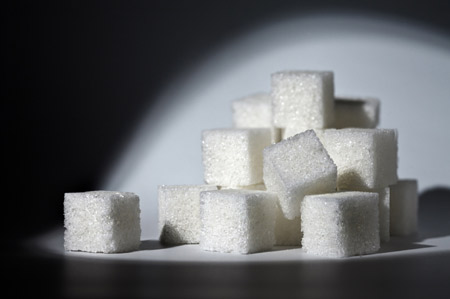USDA Trades 56,711 Tons of Sugar for Import Credits
Category: Sugar
 (Wall Street Journal) – The U.S. Department of Agriculture exchanged two-thirds of the sugar it received earlier this month after U.S. sugar processors defaulted on federal loans.
(Wall Street Journal) – The U.S. Department of Agriculture exchanged two-thirds of the sugar it received earlier this month after U.S. sugar processors defaulted on federal loans.
The USDA traded 56,711 short tons of sugar with U.S. refiners, who process raw cane sugar into the white sweetener sold in supermarkets, for import credits that would have allowed the refiners to bring 154,193 tons of the sweetener into the U.S., the agency said Thursday.
That is a net reduction of about 97,482 tons of sugar on the domestic market, but traders and refiners say the U.S. market is still oversupplied by 250,000 to 400,000 tons.
The move is the latest step by the USDA to relieve a domestic supply glut and to prevent defaults on $257 million in outstanding loans to U.S. sugar processors that come due at the end of this month.
Last month, four processors defaulted and gave the government a total of 85,375 tons of sugar that had been collateral for the loans.
The exchange allowed the USDA to dispose of much of that sugar and curtail future imports, but the USDA likely will need to absorb the total cost of the loan defaults, which was about $34.6 million.
The USDA said Thursday it would extend its offer to Tuesday to exchange the remaining 28,664 tons of sugar for import credits held by refiners.
Through the exchange, the refiners pay the USDA for the sugar with the government-issued credits, which each refiner values differently, instead of cash. Giving up the credits in exchange for sugar must cost a refiner less than importing the sugar, or else it doesn’t make sense to participate, refiners have said.
The USDA made two similar sugar-for-import-credit exchanges in July. The agency bought a total of 117,662 tons of sugar from processors that month at a cost of $50.7 million and exchanged it with refiners for the credits. The USDA said those purchases prevented a total of 381,082 tons of sugar from entering the country, or a net reduction of 263,420 tons of sugar on the domestic market.
Last month, the USDA also purchased about 7,000 tons of sugar from a processor and sold it to an ethanol maker at a $2.7 million loss.
The USDA is required by law to buy sugar from processors and sell it to biofuel makers if it believes processors might default on their loans. But few ethanol producers have sought sugar from the USDA because they typically use corn to make the biofuel.
Thus far, government outlays—including previous purchases and defaults—for the sugar program this year have totaled $88 million.
On Wednesday, the USDA said it planned to buy more domestic sugar to sell to ethanol makers before the rest of the outstanding loans come due this month.
“The first tender (of sugar to biofuel producers) was likely educational” for the USDA, said Frank Jenkins, president of Jenkins Sugar Group, a Wilton, Conn.-based brokerage. But still, “I don’t see this clearing up the whole problem” of oversupply.
Good weather and a surge in Mexican imports have boosted domestic sugar supplies this season, which has weighed on sugar prices. The falling prices have complicated the USDA’s efforts to keep the U.S. sugar program, which includes loans and import restrictions, from imposing a burden on taxpayers.
The price of domestic raw sugar on the ICE Futures U.S. exchange has tumbled about 50% over the last two years. Domestic raw sugar for November delivery settled at 21.02 cents a pound Thursday, just 0.12 cent above the USDA’s estimated threshold for loan defaults of 20.90 cents a pound.
The problem of oversupply is expected to continue next season. Last week, the USDA projected U.S. sugar supplies would reach a record of 14.3 million tons in the 2013-14 season that begins Oct. 1, a 0.7% increase in total supplies from the current season.




